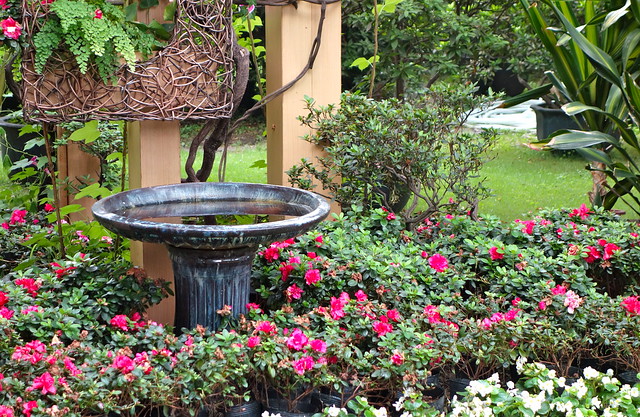Making the effort to use proper organic techniques and high quality products really improves the end result. It lets other know that you are serious about getting the most out of your organic plants. This is something that is admirable. As with any skill set, there is always room for you to grow and improve. Read on for some insights that can prove to be invaluable.
To keep your plants from getting shocked, you need to gradually introduce them to changes in temperature and conditions. At first, only leave them outside for a brief period of time. Over the course of a week, slowly increase the amount of time that you leave them outside. When the week is done, your plants will be ready for the big move without any problems.
Digging in hard clay soil is made even more difficult because it sticks to the shovel. Get better results in clay by rubbing car wax or floor wax onto the shovel, then buff off and dig. The wax prevents the clay from sticking to the shovel, and stops rust from forming.
Choose perennials that are not vulnerable to attack by slugs. It is alarming to see how quickly slugs, and their cousin snails, can annihilate a plant. Snails and slugs have a good time destroying perennials that are young and have tender and smooth thin leaves. Perennials that are unappetizing in taste, or that have hardened and hairy leaves, are not a favorite of slugs or snails. Some varieties of these plants are campanula, helleborus, heuchera, or euphorbia.
Starting a garden with the best soil is a great defense mechanism against pests. The hearty plants that will grow in a garden with rich soil can resist the bugs and diseases that weak plants can’t withstand. Starting with soil that is in good condition can yield the best plants.
Use climbers for covering fences and walls. Climbing plants are known to be very versatile, and can help hide any ugly wall or fence, and this often only takes one growing season. You may also be interested in training them over an arbor or trellis. You can also grow them among existing landscape trees and plants. There are those that have to be fixed to a support, but others will find a surface to cling to all on their own through twining stems or tendrils. A few good choices are climbing roses, wisteria, jasmine, honeysuckle and clematis.
Ensure you have the proper soil for the plants you have selected. Depending on the type of plants you desire in your garden, your natural soil may or may not be appropriate. It is also possible to make an artificial area using only one type of soil.
Soak seeds overnight, preferably in a cool, dark place. Place some seeds in your smaller pots and add water almost to the brim. This will hydrate your seeds and it will cause them to grow faster. The seeds will now have a greater chance of maturing and surviving.
Protect your delicate shrubs from harsh, wintry elements. If you have them in pots, you need to guard them from cold weather that will damage or kill them. Tie these canes at the top, and place a blanket over it. This method is preferred to wrapping a plant in plastic, since it promotes circulation and prevents rotting.
Organic Garden
Now you have the three items you need to make your organic garden a success– tools, products and skill. If you do not, you are on the right path to obtaining them. Learning is a never-ending process. The tips you have read above, of course, cover just the basics. Hopefully, you have discovered something new that you can use in your organic garden.
Originally posted 2015-01-16 08:59:07.
